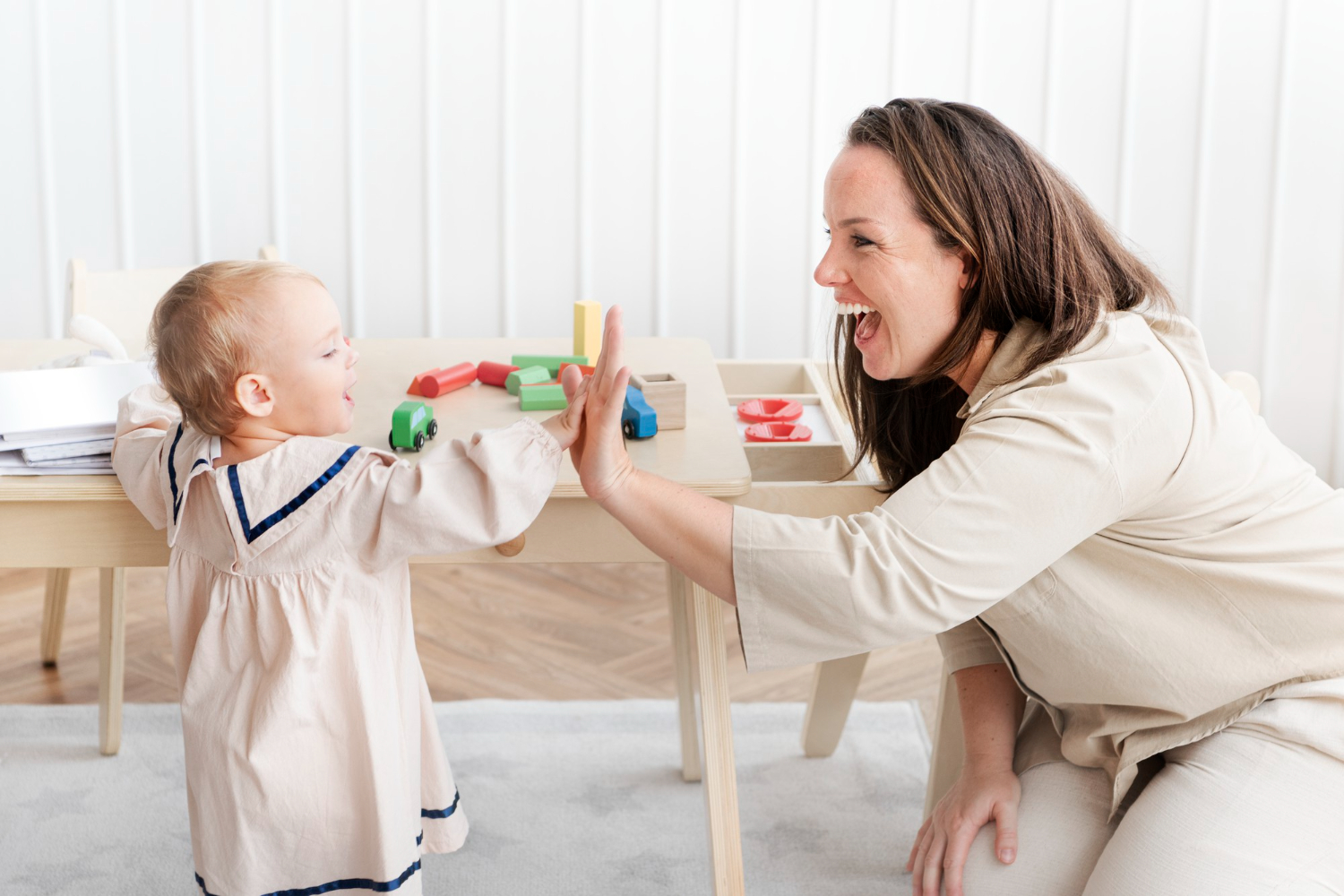Guidelines for Balancing Dating and Co-Parenting Post-Divorce
Managing dating and co-parenting post-divorce can be demanding. Establish clear boundaries for harmonious relationships. Communicate openly to prevent conflicts and prioritize children’s well-being. Introduce a new partner with sensitivity and plan quality time and date nights thoughtfully. Seek support networks for understanding. Handle conflicts gracefully with effective communication strategies. Remember, self-care is crucial for your well-being.
Key Takeaways
- Prioritize children’s needs and well-being in dating decisions.
- Maintain open communication with your co-parent about dating.
- Schedule quality time with your children separate from dating activities.
- Introduce new partners to children gradually and with sensitivity.
- Seek support from friends, family, or a therapist to navigate dating and co-parenting challenges.
Setting Boundaries

When managing dating and co-parenting post-divorce, it’s essential to establish clear boundaries to ensure that both relationships thrive harmoniously. Healthy boundaries are the cornerstone of any successful relationship. By setting boundaries with your ex-spouse, you create a foundation of mutual respect that benefits everyone involved.
Personal space is critical for maintaining balance in your life and ensuring that both your dating life and co-parenting responsibilities receive the attention they deserve.
Relationship dynamics can be complex, especially when introducing new partners into the mix. It’s important to communicate openly and honestly with both your ex-partner and your new romantic interest about your boundaries and expectations. By doing so, you can prevent misunderstandings and conflicts from arising.
Remember that setting boundaries isn’t a sign of weakness but a demonstration of self-respect and a commitment to healthy relationships for all parties involved.
Communication Strategies
Effective communication is essential for successfully managing the complexities of balancing dating and co-parenting post-divorce. Active listening and open communication are key components in fostering understanding and empathy between you and your co-parent.
When discussing schedules, parenting decisions, or any other co-parenting matters, make sure to actively listen to your co-parent’s perspective without interrupting. This not only shows respect but also helps in avoiding misunderstandings.
Conflict resolution and compromise techniques play an important role in maintaining a healthy co-parenting relationship. When disagreements arise, approach them with a willingness to find solutions that benefit both parties and, most importantly, the children involved.
Remember, compromise isn’t a sign of weakness but a strength that showcases your dedication to effective co-parenting. Through open communication, you can express your thoughts and feelings constructively, paving the way for collaborative decision-making.
Prioritizing Children

When managing dating and co-parenting after divorce, remember that prioritizing your children is essential. Making child-centric decisions and fostering effective communication with your co-parent are key components of successfully balancing these aspects of your life.
Your children’s well-being should always be at the forefront of your decisions and interactions as you move forward in this new chapter of your life.
Child-Centric Decision Making
How can you guarantee that your decisions post-divorce are guided by what’s truly in the best interest of your children?
When facing co-parenting challenges and working towards making child-focused decisions, it’s crucial to prioritize your children’s well-being above all else.
Balancing relationships and parental responsibilities can be tough, but remember that your children’s needs should always come first.
To secure child-centric decision-making, try to approach situations with empathy and understanding. Consider how each choice you make will impact your children’s lives and emotional health.
Communicate openly with your co-parent to establish a united front when it comes to decision-making. By working together and putting your children’s needs at the forefront, you can create a stable and nurturing environment for them post-divorce.
Co-Parenting Communication Strategies
To foster a healthy co-parenting relationship that prioritizes your children, focus on establishing clear and open lines of communication with your ex-partner. Active listening is key in ensuring that both of you feel heard and understood.
Practice empathy by putting yourself in your ex-partner’s shoes, acknowledging their perspective, and responding respectfully even in times of disagreement. Healthy communication involves being honest yet considerate in your discussions, keeping the focus on what’s best for your children.
Consider attending co-parenting workshops or therapy sessions together to learn effective communication strategies and problem-solving techniques. These resources can provide you with tools to navigate challenging conversations and co-parenting decisions.
Introducing a New Partner

Managing the introduction of a new partner to your co-parenting dynamic after a divorce can be a delicate and emotionally charged process. Handling introductions requires sensitivity towards your children and ex-partner.
When blending families, it’s important to take into account everyone’s feelings and establish open communication.
Before introducing your new partner, make sure your children have had time to adjust to the divorce. Talk to them about the upcoming introduction and address any concerns they may have. When the time comes, plan a casual meeting in a neutral setting to ease any tension.
Remember that your ex-partner may also have reservations about the new partner’s involvement in their children’s lives. Respect their feelings and involve them in the process if appropriate. Keeping the lines of communication open can help build trust and understanding among all parties involved.
Above all, approach these introductions with patience and empathy. Recognize that this is a significant change for everyone and allow time for adjustment. By prioritizing the well-being of your children and the respect for all individuals involved, you can navigate these introductions smoothly and create a harmonious co-parenting dynamic.
Respecting Ex-Partner’s Boundaries

Respecting your ex-partner’s boundaries post-divorce is essential for fostering a healthy co-parenting relationship. Healthy boundaries are pivotal for creating a respectful and harmonious dynamic between you and your ex-partner. It’s important to acknowledge and honor each other’s personal space, emotional limits, and parenting styles.
By recognizing and respecting these boundaries, you demonstrate mutual respect and consideration, which are key elements in successful co-parenting.
When managing co-parenting responsibilities, communication plays an integral role in establishing and maintaining healthy boundaries. Keep an open and honest dialogue with your ex-partner about what’s acceptable and comfortable for both parties. Understanding and accepting each other’s boundaries can help prevent misunderstandings and conflicts, ultimately promoting a more cooperative co-parenting relationship.
Scheduling Quality Time
Balancing your dating life and co-parenting responsibilities post-divorce involves intentionally scheduling quality time with your children. In the midst of busy schedules, finding moments for undivided attention can be challenging but is important for maintaining strong bonds.
Incorporating date nights with your children can be a fun and meaningful way to create lasting memories. Whether it’s a movie night at home, a trip to the park, or a cooking session together, these activities can strengthen your connection and show your children they’re a top priority.
When arranging date nights, it’s important to plan ahead and secure reliable childcare if needed. This ensures that you can focus on quality time with your children without distractions or disruptions. Additionally, involving your children in the planning process can make these moments even more special and engaging for everyone involved.
Seeking Support Networks
When managing the challenges of post-divorce co-parenting, it can be highly beneficial to seek out support networks that understand and empathize with your situation. Connecting with others who are going through similar experiences can provide you with a sense of belonging and validation during this transformative period.
Online forums dedicated to co-parenting or single parenting can offer a platform for sharing stories, seeking advice, and receiving encouragement from individuals who truly comprehend the complexities of your journey.
Therapy groups focused on co-parenting can also be a valuable resource for emotional support and guidance. Engaging in group therapy sessions can help you process your feelings, develop coping strategies, and gain insights into effective co-parenting communication. These groups often provide a safe space for expressing your concerns and fears without judgment, fostering a supportive environment conducive to personal growth and healing.
Handling Conflicts Gracefully

Managing through conflicts with your co-parent post-divorce requires a delicate approach that prioritizes effective communication and mutual understanding. Conflict resolution is essential in maintaining a healthy co-parenting dynamic. When disagreements arise, remember to approach them with a mindset focused on finding solutions rather than escalating tensions.
To handle conflicts gracefully, it’s important to maintain respect for your co-parent’s perspective, even if you disagree. Acknowledge their feelings and validate their concerns, fostering open dialogue. Active listening plays an important role in understanding each other’s viewpoints and working towards compromises that benefit your children.
During conflicts, refrain from making personal attacks or bringing up past grievances. Instead, focus on the present issue at hand and aim to communicate calmly and constructively. Remember that both you and your co-parent have the best interests of your children at heart, and finding common ground is key to successful co-parenting post-divorce.
Self-Care Practices

Prioritize your well-being by incorporating self-care practices into your routine as you navigate the complexities of co-parenting post-divorce. Remember, taking care of yourself isn’t a luxury but a necessity.
Engaging in mindfulness techniques can help you stay present and reduce stress. Try setting aside a few minutes each day for deep breathing exercises or meditation to center yourself amidst the chaos.
Personal hobbies and relaxation activities can also be powerful tools for self-care. Whether it’s reading a book, going for a walk, or indulging in a creative outlet, make time for activities that bring you joy and relaxation. These moments of self-indulgence can rejuvenate your spirit and provide much-needed respite from the demands of co-parenting and dating.
Incorporating self-care practices into your daily routine is essential for maintaining your emotional and mental well-being. By prioritizing self-care, you’re better equipped to handle the challenges that come with co-parenting post-divorce.
Frequently Asked Questions
How Can I Navigate Jealousy When My Ex Starts Dating?
Feeling jealous when your ex starts dating is tough. Remember, it’s normal to have those emotions. Try managing them by setting boundaries with your ex and focusing on coping strategies and open communication techniques.
Is It Okay to Attend Events Together for Our Children?
Attending events together for your children is essential for successful co-parenting. Balancing emotions during these times can be tough, but remember, focusing on your children’s happiness and well-being is what truly matters in the end.
What if My Co-Parenting Boundaries Are Constantly Being Crossed?
When your co-parenting boundaries are crossed, it’s important to communicate your feelings clearly and set firm limits. Address the issue with compassion and understanding, seeking solutions to navigate co-parenting challenges while respecting each other’s boundaries.
Should I Involve My New Partner in Parenting Decisions?
When considering partner involvement in co-parenting decisions, remember to communicate openly with your ex and new partner. Establish clear boundaries and mutual understanding. Respect each other’s roles and prioritize the well-being of your children.
How Do I Handle Disagreements About Discipline Methods?
When handling disagreements about discipline methods, remember the importance of open communication strategies. Work towards establishing consistent rules and seek compromise. If needed, consider seeking parenting counseling to navigate these challenging situations with empathy and understanding.
Conclusion
Remember, balancing dating and co-parenting post-divorce can be challenging, but with clear boundaries, open communication, and prioritizing your children’s well-being, it’s possible to navigate this new chapter in your life successfully.
By respecting your ex-partner’s boundaries, scheduling quality time with your kids, and seeking support when needed, you can create a harmonious co-parenting relationship while also exploring new romantic connections.
Remember to practice self-care and handle conflicts gracefully for a smoother adjustment. You’ve got this!

Chad Adan Kace, a young dad from Vermont, shares his parenting journey with a touch of humor and lots of love. Father to a lively baby, he explores the joys and challenges of fatherhood through his stories.







